All Formats & Editions
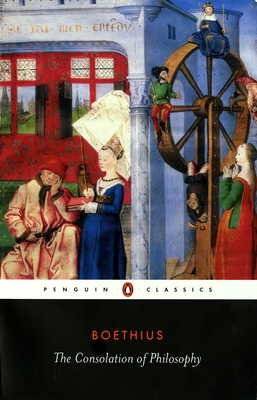
The Consolation of Philosophy
Boethius was an eminent public figure under the Gothic emperor Theodoric, and an exceptional Greek scholar. When he became involved in a conspiracy and was imprisoned in Pavia, it was to the Greek philosophers that he turned. THE CONSOLATION was written in the period leading...
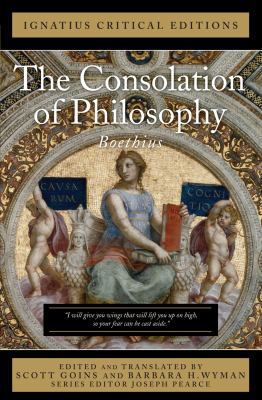
The Consolation of Philosophy: With an Introduc...
Written in the sixth century, The Consolation of Philosophy was one of the most popular and influential works of the Middle Ages. Boethius composed the masterpiece while imprisoned and awaiting the death sentence for treason. The Christian author had served as...
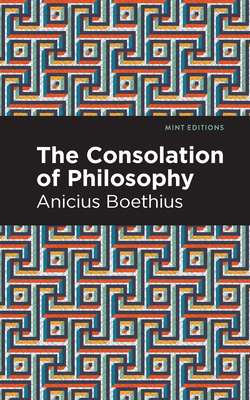
The Consolation of Philosophy
A conversational text that addresses many philosophical concepts as well as Western religion by questioning good versus evil and the unnecessary suffering of innocent people. Anicius Boethius draws from his own experiences to illustrate these spiritual and ethical struggles.

The Consolation of Philosophy
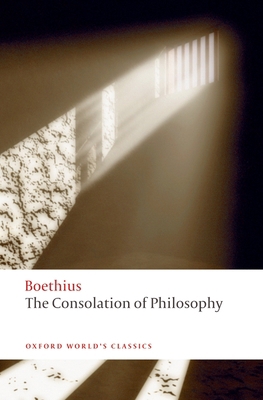
The Consolation of Philosophy
Boethius composed De Consolation Philosophiae in the sixth century A.D. while awaiting death by torture, condemned on a charge of plotting against Gothic rule, which he protested as manifestly unjust. Though a Christian, Boethius details the true end of life as the soul's knowledge...
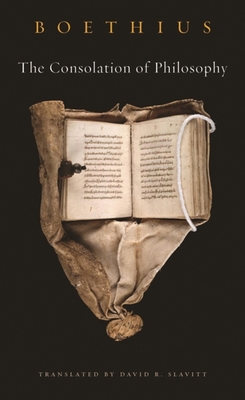
The Consolation of Philosophy
In this highly praised new translation of Boethius's The Consolation of Philosophy, David R. Slavitt presents a graceful, accessible, and modern version for both longtime admirers of one of the great masterpieces of philosophical literature and those encountering it...
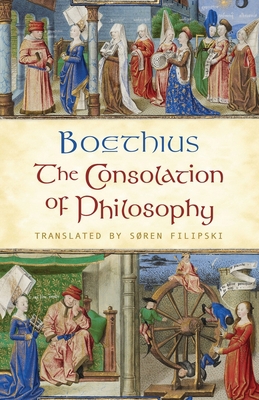
The Consolation of Philosophy
![La consolación de la filosofía (Spanish Edition) [Spanish] B0CSPN5LWN Book Cover](https://m.media-amazon.com/images/I/41WH2K4KQML._SL500_.jpg)
La consolación de la filosofía (Spanish Edition) [Spanish]
LA CONSOLACIÓN DE LA FILOSOFÍA: Este libro fue escrito por Boecio en el año 524 en el período previo a su brutal ejecución, donde, afligido por la injusticia de su encarcelamiento por involucrarse en una conspiración, Boecio medita sobre la naturaleza de Dios, la inconstancia...
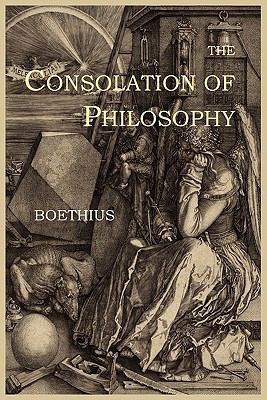
The Consolation of Philosophy
2011 Reprint of 1962 Edition. Full facsimile of the original edition, not reproduced with Optical Recognition Software. "Consolation of Philosophy" is a philosophical work by Boethius, written around the year 524. It has been described as the single most important and influential...

The Consolation of Philosophy
The Consolation of Philosophy , written by Boethius in the sixth century, is a timeless classic that has been read for centuries. This book is a philosophical meditation on the nature of happiness and suffering by one of the brightest minds of the early medieval period. Boethius...

The Consolation of Philosophy: By Boethius - Il...
How is this book unique? Font adjustments & biography included Unabridged (100% Original content) Formatted for e-reader Illustrated About The Consolation of Philosophy by Boethius Boethius was an eminent public figure under the Gothic emperor Theodoric, and an exceptional Greek...
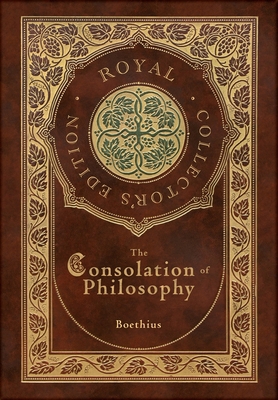
The Consolation of Philosophy (Royal Collector'...
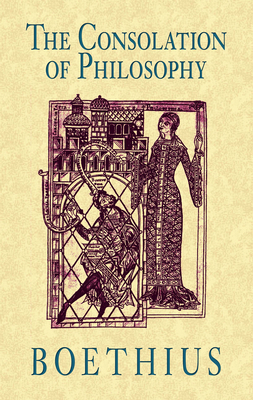
The Consolation of Philosophy
One of the most influential books in the history of Western thought, The Consolation of Philosophy was written in a prison cell by a condemned man. Anicius Manlius Severinus Boethius (c. 480-524) was a Roman scholar, theologian, philosopher, and statesman. Imprisoned...
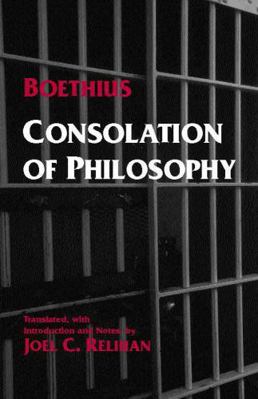
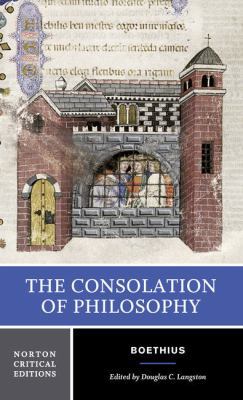
The Consolation of Philosophy: A Norton Critica...
The Consolation of Philosophy occupies a central place in the history of Western thought. Its author, Anicius Manlius Severinus Boethius (ca. 476-526 c.e.), was a Roman philosopher, scholar, and statesman who wrote The Consolation of Philosophy while in a remote prison awaiting...
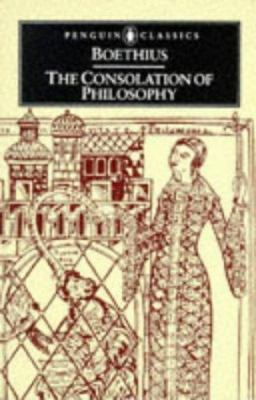
The Consolation of Philosoophy
Boethius composed the Consolatio Philosophiae in the sixth century AD whilst awaiting death under torture. The circumstances of composition, the heroic demeanor of the author, and the Menippean' texture have combined to exercise a fascination over students of philosophy and of...
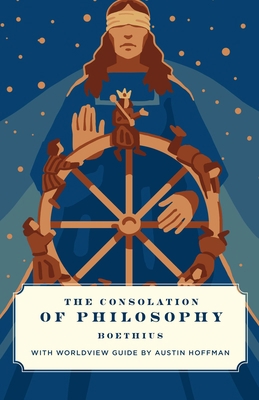
The Consolation of Philosophy
Originally published in 1918; new introduction.

The Consolation of Philosophy: Boethius
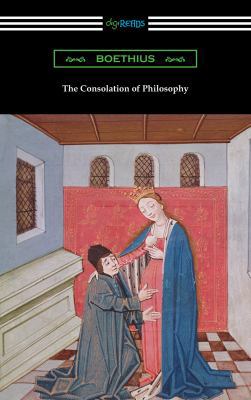
The Consolation of Philosophy
Born in the late 5th century AD, Boethius was a Roman statesman and philosopher who would come into the service of the Ostrogothic ruler of Italy, Theodoric the Great. Ultimately he would rise to the position of magister officiorum, the head of all the government and court...
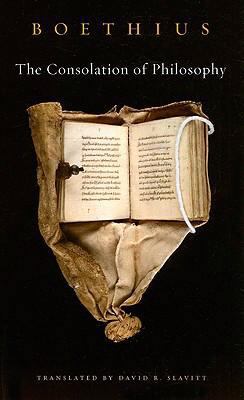
The Consolation of Philosophy
Composed while its author was imprisoned, this book remains one of Western literature's most eloquent meditations on the transitory nature of earthly belongings, and the superiority of things of the mind. Slavitt's translation captures the energy and passion of the original...
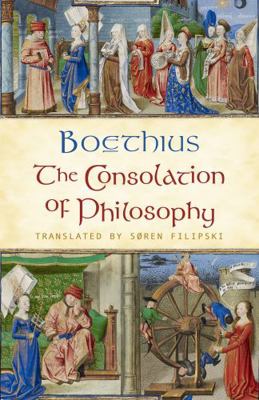
The Consolation of Philosophy
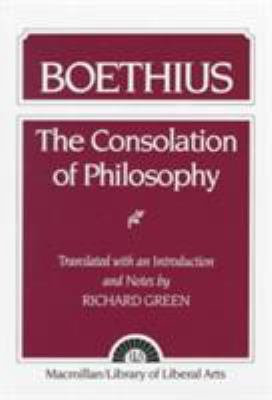
The Consolation of Philosophy: Boethius

Consolation of Queen Elizabeth I: The Queen's T...
![Consolatio Philosophiae [Latin] 0929524373 Book Cover](https://i.thriftbooks.com/api/imagehandler/l/D93E54196B0CB29ED87E71A8DF1CF818F5E817BC.jpeg)
Consolatio Philosophiae [Latin]
Bryn Mawr Commentaries provide clear, concise, accurate, and consistent support for students making the transition from introductory and intermediate texts to the direct experience of ancient Greek and Latin literature. They assume that the student will know the basics of grammar...
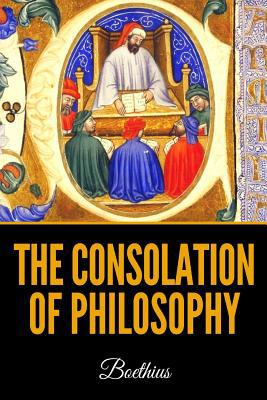
The Consolation of Philosophy
The book called 'The Consolation of Philosophy' was throughout the Middle Ages, and down to the beginnings of the modern epoch in the sixteenth century, the scholar's familiar companion. Few books have exercised a wider influence in their time. It has been translated into every...



